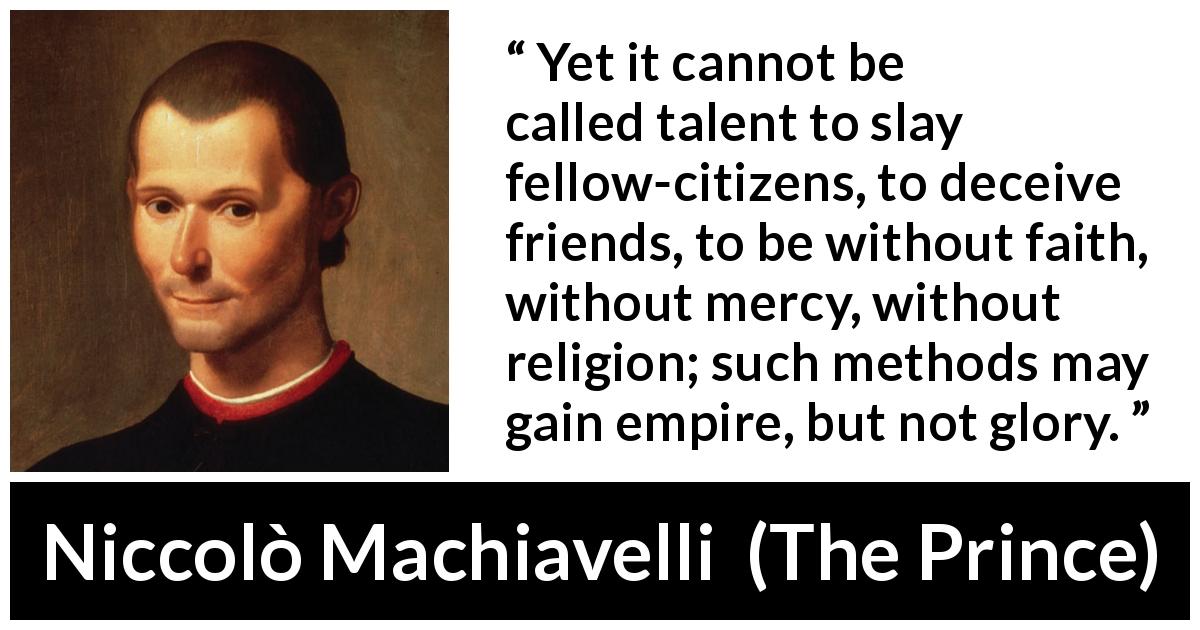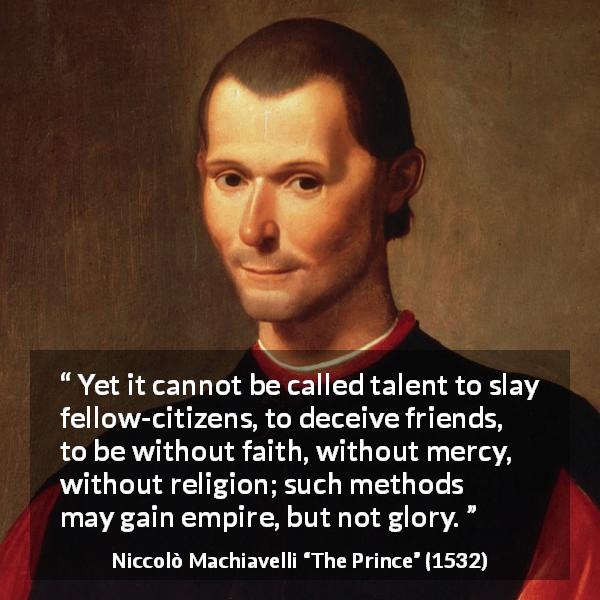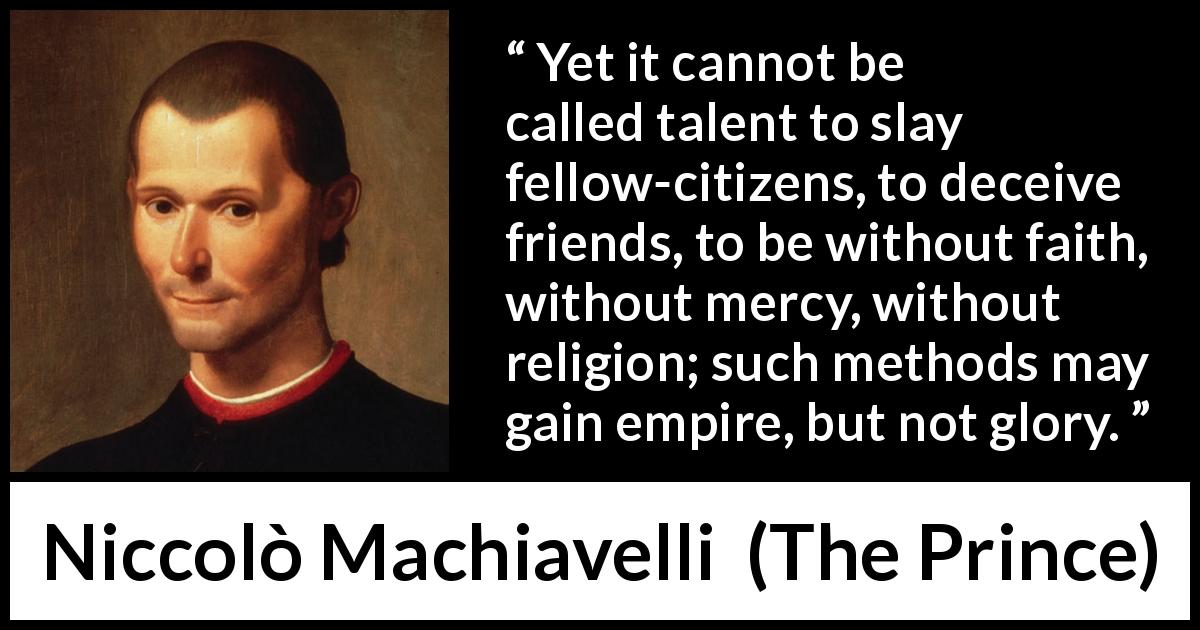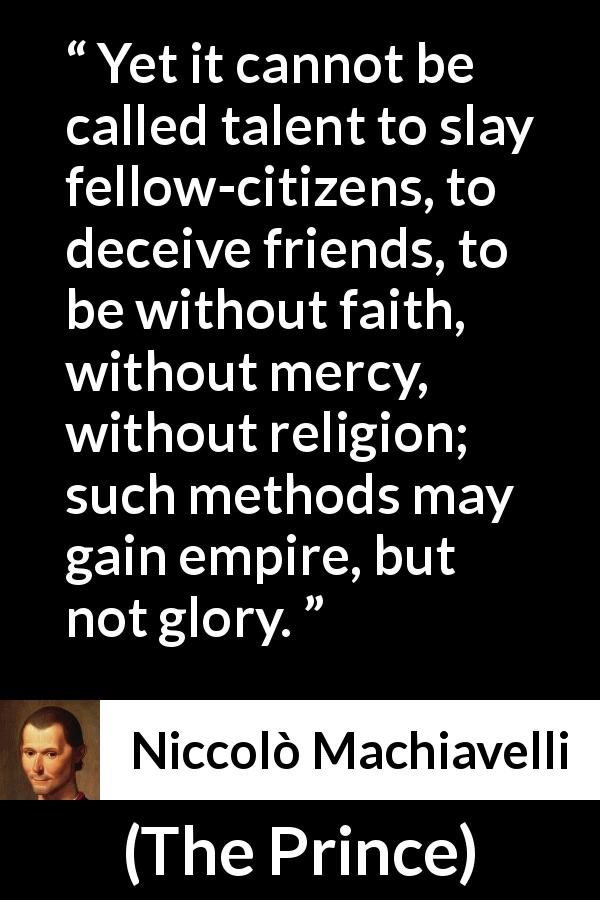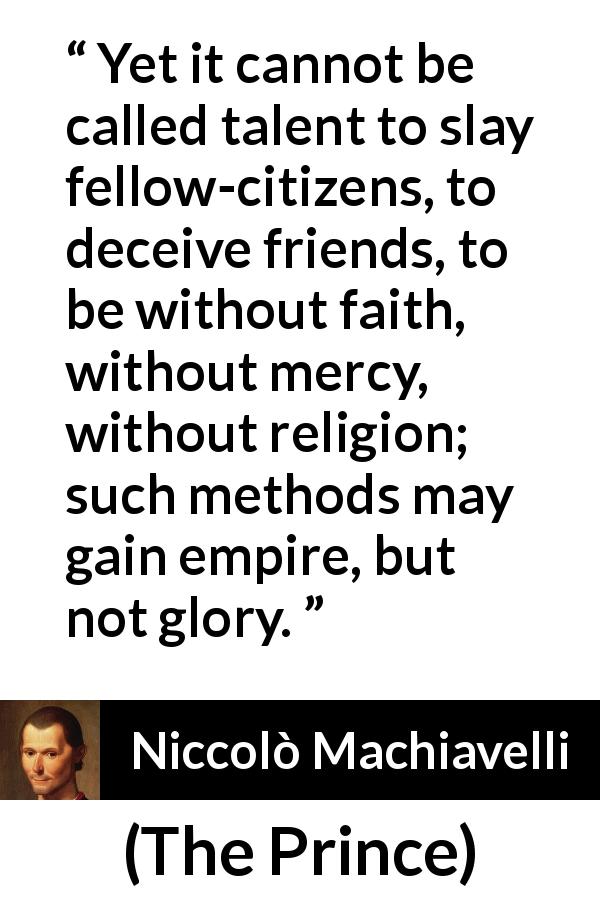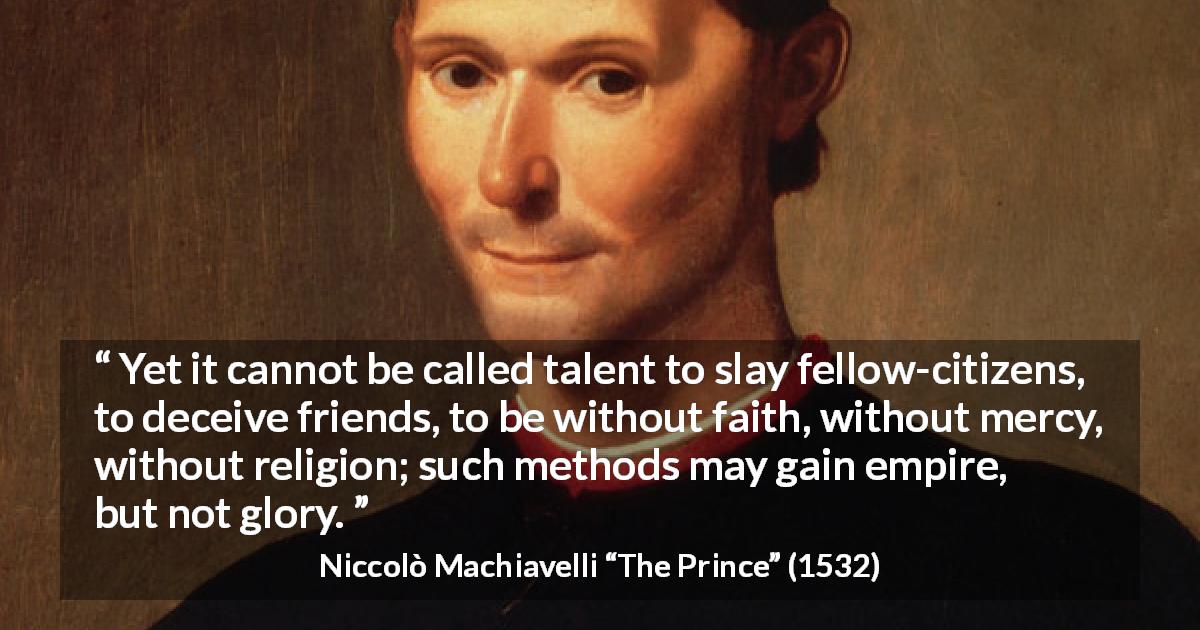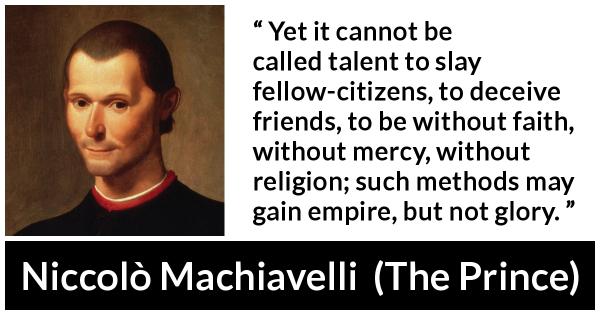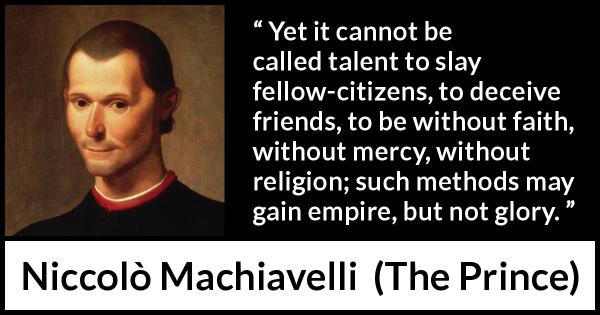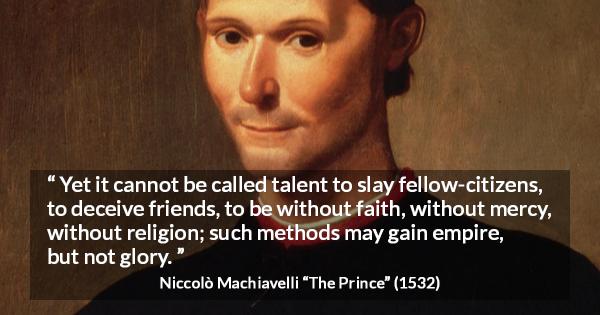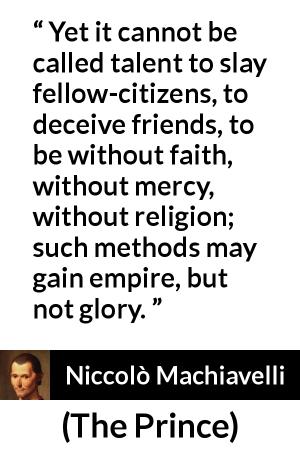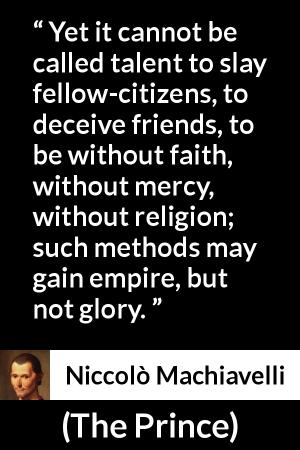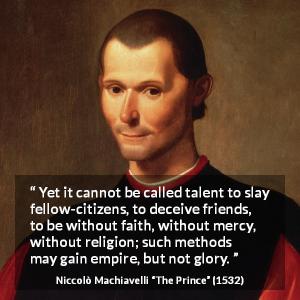“ Yet it cannot be called talent to slay fellow-citizens, to deceive friends, to be without faith, without mercy, without religion; such methods may gain empire, but not glory. ”
Niccolò Machiavelli, The Prince (1532). copy citation
| Author | Niccolò Machiavelli |
|---|---|
| Source | The Prince |
| Topic | violence power glory |
| Date | 1532 |
| Language | English |
| Reference | |
| Note | Translated by W. K. Marriott |
| Weblink | http://www.gutenberg.org/files/1232/1232-h/1232-h.htm |
Context
“Therefore, he who considers the actions and the genius of this man will see nothing, or little, which can be attributed to fortune, inasmuch as he attained pre-eminence, as is shown above, not by the favour of any one, but step by step in the military profession, which steps were gained with a thousand troubles and perils, and were afterwards boldly held by him with many hazardous dangers. Yet it cannot be called talent to slay fellow-citizens, to deceive friends, to be without faith, without mercy, without religion; such methods may gain empire, but not glory. Still, if the courage of Agathocles in entering into and extricating himself from dangers be considered, together with his greatness of mind in enduring and overcoming hardships, it cannot be seen why he should be esteemed less than the most notable captain.”
source
